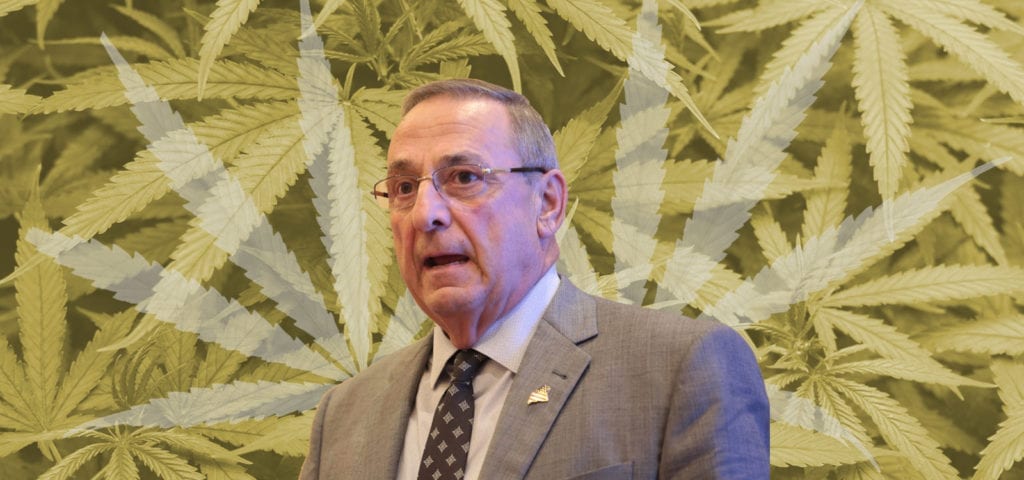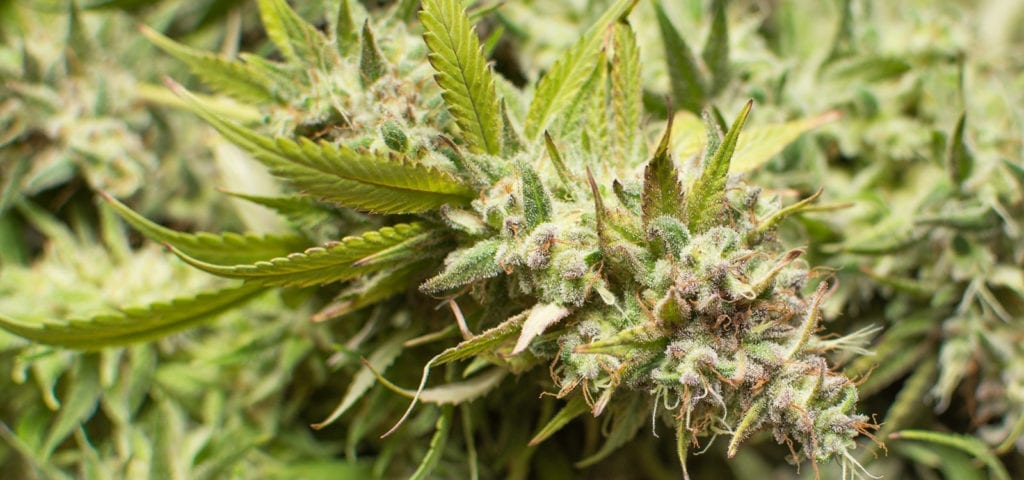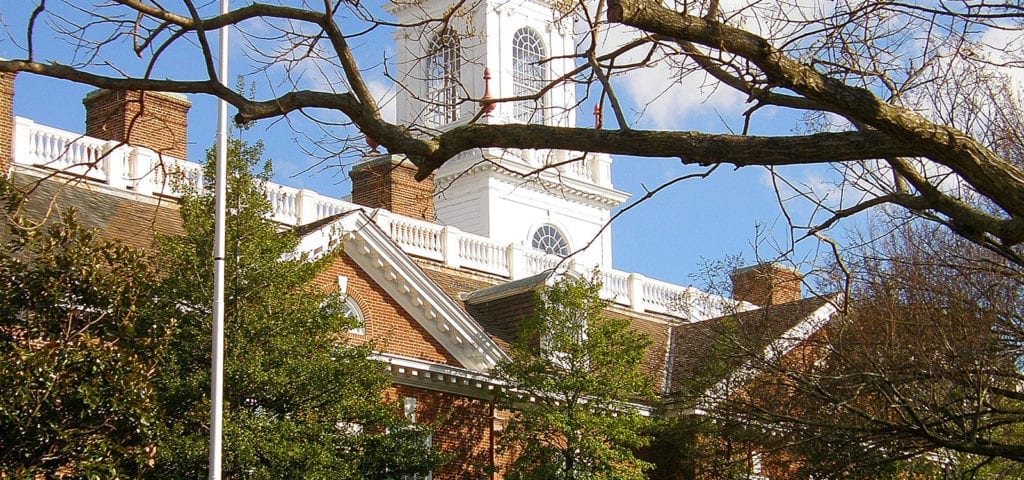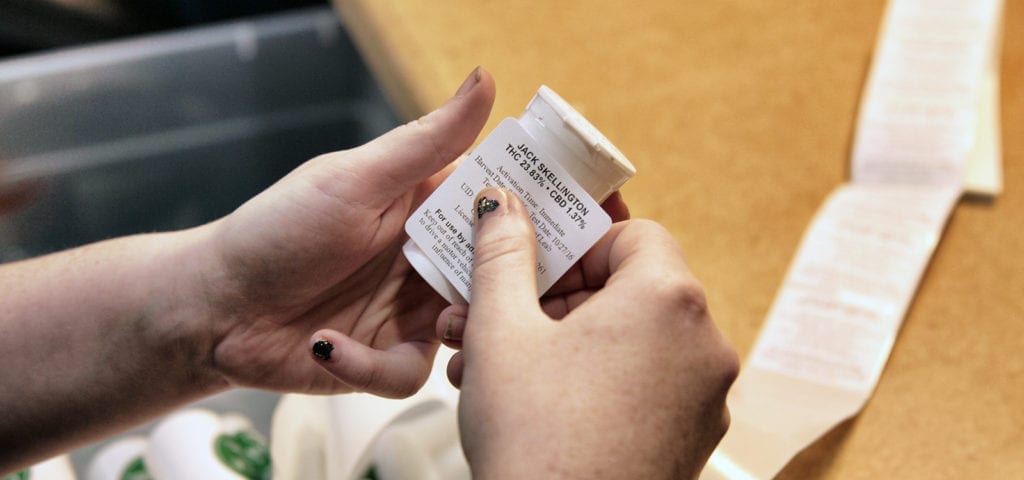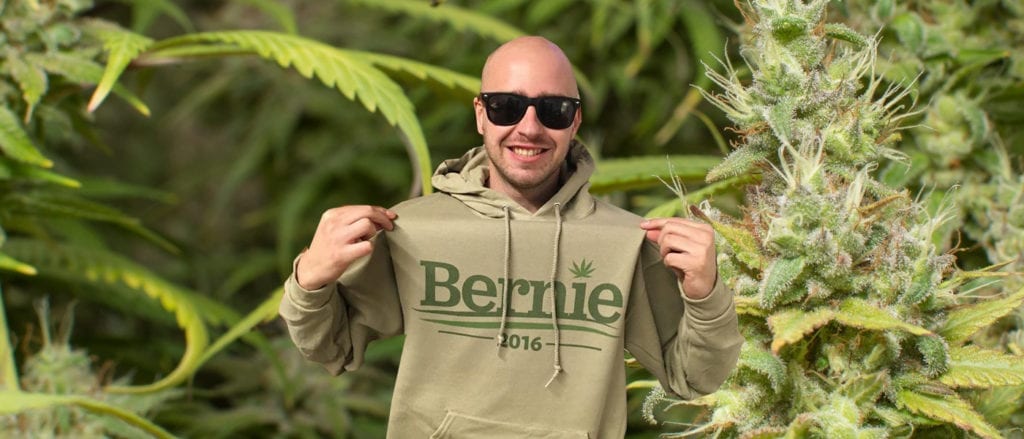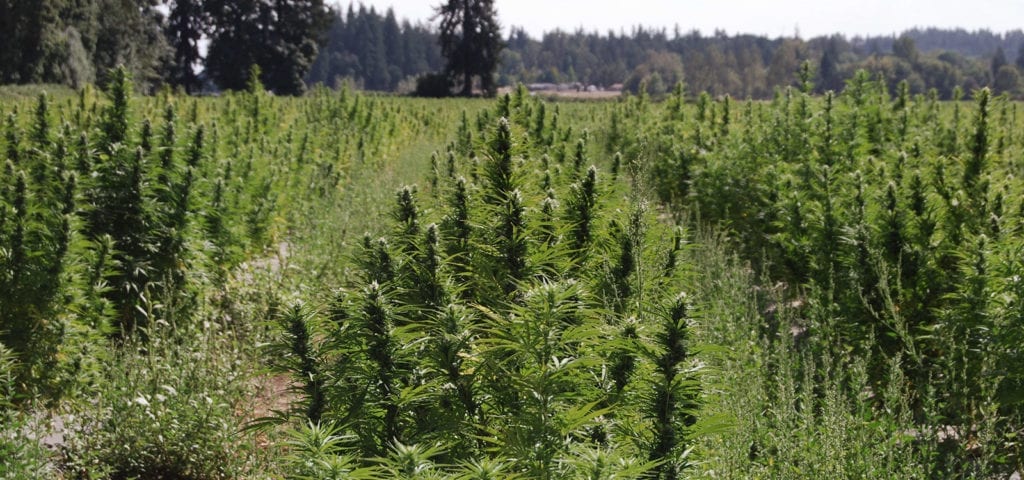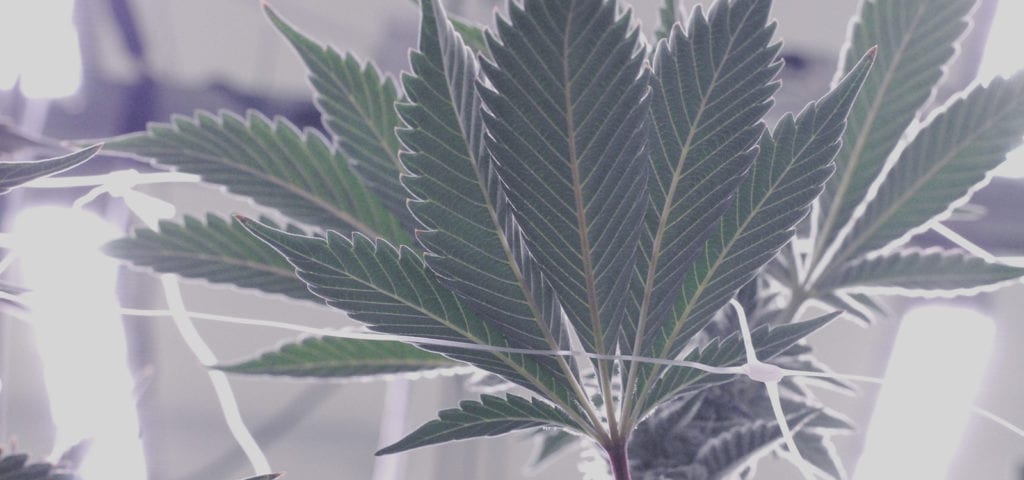Eli Harrington is the co-founder and managing editor of Heady Vermont, a cannabis news outlet dedicated to Vermont’s medical cannabis industry and culture, and host of the Vermontijuana Podcast.
In this Ganjapreneur.com podcast interview, Eli joins our host TG Branfalt — who is currently a Vermont resident, as well — to discuss cannabis’ entrepreneurial culture in Vermont and throughout the North Eastern states. The two also discuss Eli’s organization efforts for Vermont’s recent HempFest (and the event’s many successes), talk about the endless possibilities of the industrial hemp revolution, swap stories about being cannabis journalists, and much more!
Listen to the full interview below, or scroll further down to read the full transcript.
Listen to the podcast:
Read the transcript:
TG Branfalt: Hey there, I’m your host TG Branfalt and you’re listening to the Ganjapreneur.com podcast where we try to bring you actionable information and normalized cannabis through the stories of ganjapreneurs, activists, and industry stakeholders. Today I am joined by Eli Harrington. He is the co-founder and managing editor of Heady Vermont. I’ve worked with this guy a lot. I’m super thrilled to talk to him and share sort of the Heady Vermont and his sort of story with the listeners. How you doing today?
Eli Harrington: I am doing great and I’m equally pumped to be involved because I have been listening to the Ganjapreneur podcast and a subscriber for a couple years now, before we actually knew each other in person up here in Burlington, Vermont. So it’s cool, everything coming full circle and getting to talk about what’s happening up here in Vermont and the North East in general with the cannabis scene. It’s always excellent.
TG Branfalt: So let’s sort of start with, you know, we know each other, but people don’t necessarily know you. You really like, if you’re in the cannabis scene out here, people know who you are. They’ve seen you. You’ve been at the capital pushing for certain legislation, that sort of thing, but tell me your background man. How did you end up this sort of, I don’t want to call you a character, but character out here?
Eli Harrington: No, I think character is probably fair. For me it all started with a family connection to a guy named Mark Tucci who was one of the original advocates and activists and patients here in Vermont and coming up in high school even, I remember 2003, 2004, I was always interested in Vermont politics and seeing Tucci, whose going through MS, work with a legislature, do advocacy, educating everybody about medical marijuana. This is 14 years ago, it was very different times right? Even up here in Vermont. So that was my background and then I went to college. Brandeis, very liberal place. I did a fair amount of experimenting and it was really a few years ago, I moved back to Vermont after spending seven years in the world of non profit and international relations.
I have a background in diplomacy, which I think helps a lot in the cannabis space frankly. I think about that all the time. And yeah, a few years ago, sort of saw a need for a resource for information and that Vermont had a cannabis community, I was familiar with it, we had a cannabis culture and tradition that goes back a long time and as things started becoming more serious publicly with legislation being proposed, with trade groups forming up, I said “You know, there are a lot of people out there who are like me.” You know. I’m 29, I’m interested in this subject in a lot of different ways, who have a different attitude about cannabis, who know what’s happening around the country, who are interested and beyond that, the roots community.
All the people in Vermont who have been working hard, advocating, risking their freedom, frankly, for a long time. Being connected with them and knowing they don’t really access to the political process. Even here in Vermont which is very small, very transparent, and very accessible. If you’re not used to dealing with politics and working in the state house and doing effective advocacy and lobbying and you know, frankly, diplomacy. Everybody who knows cultivators knows that you, especially the OG’s, there’s a certain ethos and they tend to be a bit more independent, vocal and so we kind of started with this approach of just this social one, is that we want to be the resource for the people that know the most, the people that care the most and really try to be a part of building something for the future here in Vermont and in the north east because whatever your personal opinion is on cannabis, this is a historic time we’re living through right now as far as transition.
The way that technology has democratized the world, anybody can start a blog, get involved, be out there advocating, find other advocates, and sort of build something, which is where we’re approaching with Heady Vermont and Monica Donivan, our publisher, co-founder, co-organizer of the Vermont Hempfest. She’s awesome. We’re so fortunate to have such a great partnership and to share the vision and really just be building this network which has come through individual connections. Like you said Vermont’s a small town, it’s what we like to joke around with. The population, you know from being here, everybody knows each other. It’s like not Six Degrees with Kevin Bacon, it’s like two degrees. Right?
TG Branfalt: For sure.
Eli Harrington: So it is a cool place as far as being apart of this community and seeing how it’s transitioning. More people who are coming out, who are advocating, and sort of watching the way things go and trying to be a part of shaping that process and …
TG Branfalt: So, we’re three days, four days, five days, whatever it is, removed from HempFest which was really, really a rad event. There was just so many different business ideas there and stuff that I hadn’t seen just coming here and the sheer amount of people that showed up to that to, you know, to Burke Mountain, which if people aren’t familiar, you really gotta be going with a purpose like you said yesterday.
Eli Harrington: You need intention. You need that intention like Mike talked about.
TG Branfalt: And it was brilliant. Mike Lewis was incredible. Joel Bedard was, he has his presence you know and these are people, Mike’s from Kentucky and Joel’s really kind of a big, another real big character in the scene out here. But what I want to ask you is, tell me about getting that whole thing together. That whole process of HempFest and how you guys sort of came up with and then just pulling it off, just give some advice to people who might be considering getting involved and would prefer sort of a festival than maybe something at the capital right? Because both are a show of force.
Eli Harrington: Yes. Yeah and thinking about different events, right, I mean that’s kind of been my own experience. I’ve learned so much from going to different events. A lot of them here regionally in New England. Gotta give a shout out to NeCann, which is a regional show that we’re gonna bring up here to Burlington in May for the first time. We’re stoked about that. So you know, that was the first step for me, for Heady Vermont which is becoming a membership organization or an advocacy platform, but we’re also a publishing company and our online, putting out original content, investing in bringing stories to Vermonters and stories of Vermonters. That’s always been sort of an idea, is what we’re gonna do with events.
And to be honest we’ve experimented with a lot of different things on smaller scales. Everything from being part of the Vermont Cannabis Week to doing our own anniversary parties, having panel discussions. In the event space it’s tough because you kind of want to be everything to everybody and especially in a place like Vermont where it’s so nascent and this is probably the situation in a lot of other states, where you feel like things are just starting to happen. For us the experience was the more we can present at one single event, the more people we can appeal to, right, so that we wanted to get everybody in an interest … If you’re doing a smaller event, let’s say a meet up at a coffee shop or a bar, putting together a panel where you say “What’s going on with the politics?” Because people are gonna want to know how they can get involved.
“What’s going on with business?” Somebody whose in the game, maybe “What’s going on with medical?” If that’s something that’s happening in your state. So our journey was really, there’s no short cut. You have to do a lot of these things. I put on an event a few years ago that myself and the DJ were the only ones who showed up. When I was just doing this Vermontijuana blog and that was an educational experience and figuring out who your audience is and who are the people that are gonna come to those events. If we didn’t have such a great readership with Heady Vermont, who are not only people that follow on Facebook and click the links, but people that we know and people who’ve come out to events and people who know us.
Being out there and advocating is such an important way to not only make the change that we all want to see as far as different reforms and really opening things up in a lot of ways, but it’s how you network and it’s how you get known and if you’re trying to have an event and people don’t know your name, they’ve never seen your face, why are they gonna shell out the money to sponsor something? So if we didn’t have a track record of putting on some successful events on smaller scales, we probably wouldn’t have tackled this and taken it on. The opportunity with HempFest is really unique to Vermont and probably some other states as well where hemp is allowed to be cultivated.
So in Vermont we don’t have adult use. We have decriminalization. We can talk about all the politics, we’re ramping up for that, but what we do have is we have industrial hemp at the state wide level. So you have a lot of people growing CBD right now and a lot of people producing CBD products. People are looking at other industrial hemp. We have some people who are actually building custom combines to harvest hemp at a more industrial scale which is so cool to see happening.
TG Branfalt: That’s what the industry needs nationwide.
Eli Harrington: Yeah.
TG Branfalt: Every hemp industry, everyone I talk to says we need infrastructure.
Eli Harrington: Yep. Processing, processing capacity, building up those networks, cooperative so. To kind of set the scene, hemp is really big in Vermont. It has been for the last year or two. A lot of that, I think, is driven by the fact there is not adult use and that our medical system is very closed. We’re gonna announce our fifth dispensary license very shortly. Each of them is gonna have a satellite. So we’re gonna have 10 dispensary physical locations probably by the end of next year, but it’s still a very closed system. It’s tough to get a card. So I think a lot of that pent up energy of people who want to be in the adult use game, people who want to be in the medical, who want to be making those value added products, I mean in Vermont that’s so huge. I mean beer, cheese, honey, cider, all of these things. You know maple syrup. So right now I think a lot of people, especially in the CBD side, they’re really learning kind the cannabis industry in that way. And there are unique things to CBD that we really wanted to highlight with HempFest.
TG Branfalt: So one of the unique things that I’ve noticed is the fact that everyone who’s doing these sort of cottage CBD programs or what have you, they’re infusing their stuff that they’ve produced or they’re partnering with other non-cannabis businesses. People who make tea, all these different things, and so the CBD is, pardon the pun, infusing itself within the local economy.
Eli Harrington: To be sure. And here in Vermont, part of what drove the success of HempFest was good timing. A year ago there was a hemp beer out and people really didn’t pay attention. This year a CBD beer came out and it was huge, it was national news, I read about it on Ganjapreneur. So I think consumer consciousness is a huge thing, but to sort of pull back a little bit, when you’re thinking about putting together an event, thinking about who is your audience, what do they need to know or what do you want them to take away from it and sort of what elements do you need to need to have to make that happen?
One, for us was an awesome host. Burke Mountain, these guys, like you said, they’re up in the north east kingdom part of Vermont. I have some local connections there which are young, but are sincere so I really wanted to do an event in that part of the state which is rural, which does have a lot of fallow land, which does have a lot of land owners and former farmers who want to be doing something with their productive, organic Vermont-branded acreage. So that was a big part for us, was being able to do it there and having a great host. We talked the rules very frankly before and they said “We’re gonna be open for business. So is there gonna be paraphernalia there? Are people going to be consuming out there on the back patio right by all the mountain bikers and the scenic chairlift rides.”
And we talked through all that, we had a plan and we knew that we could trust the people to show up and very validating that the cannabis community, you don’t have to tell people how to act. I mean we’re all responsible citizens for the most part or at least in proportion to the rest of society right? So for us, really, thinking with intent about “What do we want people to get when they come to our event?” We want you to be able to learn, go from zero to at least some understanding of a lot of different topics. So that’s why we decided to have back to back sessions instead of concurrent because I don’t want to make someone choose between the land owners session and the CBD 101 session. I want you to stay throughout the entire day and go from “What are the rules for cultivating? How do I find seeds or cuttings or clones? What’s the processing?” And then through the rest of it.
So we kind of, we addressed all that. We talked about what CBD from a pharmaceutical and pharmacological level. We talked about a lot of the products that were out there and I think that was a huge part, was show casing not only national brands, I mean you had Mary’s and CW there represented with Siri’s natural remedies and telling people about trans-thermal patches and the everyday oils and then you also had people who were doing it themselves. I mean my guy Kyle from Creek Valley Cannabidiol, he was one of the stars of the conference. A guy whose up there in the north east kingdom growing a thousand plants, learning this by himself, all organic, no till, processing on site, and making kombucha, making his own vape pens and really sort of showing that you can do all of it yourself.
And that, the cannabis game just like the event game, there is no short cut. Spoiler alert, you just bust your ass, you stay up till 3 o’clock in the morning sending out emails, network with people, go to other events and be able to make sincere connections and then have some, have a lot of faith.
TG Branfalt: So I want to talk to you a bit more about some of the connections that you made before HempFest and getting all set up, but before we do that, we gotta take a break. This is the Ganjapreneur.com podcast with TG Branfalt.
If you are looking for a job in the rapidly growing and highly competitive cannabis industry, Ganjapreneur.com is the place to look. Visit the Ganjapreneur job board today to browse current openings with cannabis companies throughout the United States. From entry-level budtender positions to executive level career opportunities. You can also create a profile and upload your resume to be discovered by cannabis recruiters. Visit our job board at jobs.ganjapreneur.com to create your profile today.
If you are a business owner, you can post your job openings for as little as $25 on our job board to reach the largest and most engaged audience of cannabis professionals on the web. Companies who are listed in the Ganjapreneur business directory are eligible for free job listings. If you are already signed up, contact us today via the website or send us an email at grow@ganjapreneur.com to activate your unique coupon.
TG Branfalt: Hey, welcome back to the Ganjapreneur.com podcast. I’m your host TG Branfalt here with Eli Harrington, co-founder, managing editor of Heady Vermont. I have doctor next to your name for some reason I almost called you Dr. Eli Harrington.
Eli Harrington: I’ve been called a lot of different things. Not that one yet.
TG Branfalt: So, again I want to go back to this, one of the things that really stood about to me about HempFest was the Tara Lynn Bridal, the Simmering Bone who won the pitch competition, the Purple Fox Pitch Competition. How’d you come across these sort of real industrious, real small businesses? How’d you find, maybe not these particular, but some of the smaller operators for HempFest?
Eli Harrington: I think that was really part of the beauty and the magic of it. And going back to think about sort of the intent, accessibility was something that was really important. So if we make a booth too expensive, then that little person, that little guy whose just starting up is not going to be able to afford to come to your show and for us, we’d rather have 36 different booths with a lot of different people making connections themselves than have 10 booths and charge three times the price.
So the price point was definitely a factor. We also talk to people and said “Hey, we’ll work with you. If you want to donate items for a gift basket or come up with some barter.” The way that we structured it was that we didn’t want to have to press vendors to get out because you get those people out, they’re gonna bring their fans and their supporters, they’re gonna make connections. And I mean people were selling stuff, probably making some pretty good cash at their tables just by the sheer volume of like 500 people coming through and checking out all these products, but it goes back to having a network of real people. And that’s the kind of thing that, that’s what I love about the cannabis industry and the culture in general is that people can smell fakes and they know if you’re real, they know if you’re not. And that doesn’t mean that you’ve got the most calloused hands or the knottiest dreads.
It means that you’re somebody whose authentic and sincere and you walk the walk and stand up for what you believe in. So people who see you out there genuinely networking, talking to people, writing commentaries, sharing your stuff on Facebook even. Those are the way that you grow connections and then when it’s time to put on an event, you think deliberately about pricing and think about that guy that I met at that event who I want to come to my event. $20 ticket might be too much, but maybe we can offer a patient discount. We offered a locals discount for people in the north east kingdom because we really wanted to get local people who are land owners to come out and check it out and that was one of the coolest parts, is having an 80 year old dairy farmer with the thickest accent you’ve ever heard talking about being interested in hemp, sincerely.
And so if we can get those people out, that to me, the diversity in a crowd and the engagement, that was the measure of success and we did spend money on advertising. Not a ton because we’re our own publishing company so that something that killed me.
TG Branfalt: There’s a flyer. There’s a flyer right out on a telephone pole in front of my house.
Eli Harrington: Yeah, well thank you very much and again, there’s no short cuts to, there’s a reason that you …
TG Branfalt: I didn’t put that there. I don’t know how that got there.
Eli Harrington: That’s right. Well the same thing, like there’s a reason you have street teams. Anybody whose up in the north eastern part of the state who saw a poster, it’s because I drove my ass around to every single country store and gas station and put one up and talked to people and gave out stickers and hyped it up. Again, there’s no secret formula and you can buy all the advertising you want on social media and elsewhere, but if people don’t identify that brand or that logo to an actual person, they’re not gonna come out and I think that’s especially true with cannabis events where people have to kind of see that it’s cool, you can show up to this event. There is no stigma to come here and be educated.
It depends how your event is presented. If you’re trying to do, if you’re having a smoke out, like that’s cool, you’re gonna attract those hardcore people who want to come and have a smoke out. If you want to get more mainstream audience, people who are canna-curious instead of experts, then you have to think about the way you design and promote the show and for us having the University of Vermont agricultural extension. They where the first people that we called because we said if people know we’re serious about this, we’re sincere, we want to have information for land owners. We want agronomic experts, we want agriculturalist so we’re gonna get the university extension who have been growing test crops for the last four years and are doing the actual science and research. We’re gonna get them first and if we can’t get them onboard, then people aren’t gonna know that it’s legit.
Then same thing the Vermont Hemp Company and having people who are experts and have been planting and working with farmers, who are agronomist, who are doing a ton of stuff. I mean they came out with this tea this weekend that was so cool. So, again, thinking about what we’re gonna be able to bring to people and how you want to frame it and for us to go to other sponsors and other vendors and say “Hey look, the university is onboard” and I know that, disclaimer, the University of Vermont does not support things as a whole. The people don’t necessarily represent the entire university, but this extension, which is doing this really cutting edge, awesome research, they’re the ones who are gonna go to your field and talk to you as the farmer, so they’re the ones we wanted at the events to cover that.
And then same thing with having a retail partner like Siri’s. Having Phyto Science Institute who do testing, who do extraction, who do processing and Siri’s doing that as well. Having Humble Roots Horticulture which is like, these guys took a college business plan and now they’ve got an acre of hemp in the ground, which is so cool to see as some young cats that are out there getting their name out, learning a ton, and building the network. So what happened at HempFest was awesome, what’s gonna happen afterwards is what’s really exciting and that’s how we’ll know, is like when we have those 10 other businesses that start next year and buy tables because they got their connections at HempFest and we hear from people that “Hey I started growing because I met Joel at the Vermont Hemp Company.” Or “I’m somebody who has a, I’m making a Vermont granola and I started putting CBD honey in it because I met the Loose Farm people and now I have whole other product and revenue stream.”
So that’s what’s really gonna be rad, to see what comes after all of this because we’re really at that stage where we’re all just like planting seeds and we’re not even into …
TG Branfalt: It’s a lot, it’s research. Everyone’s just doing research. I want to switch gears a little bit and talk to you about, we can talk about HempFest all day, but I do want to talk to you just a little bit about the biggest story once I got here especially, was what happened with … The legislature passed it, it wasn’t a full rec tax-and-rack, but you know, I don’t if that’s even the best model, but it was a landmark. This has never happened in Vermont and this is in part due to the tireless advocacy that happened and you did a lot in that capacity. So now they’ve convened another commission. What number commission is this?
Eli Harrington: I mean, it’s not, I think it was 2014 when they paid the RAND Corporation, not a ton of money, but I think like $25,000 to write a 110 page report. So we’ve had this report that we’ve paid for for a couple years hanging out and then the old adage in politics, if you don’t want to do something, you create a commission, right, or if you want to delay something, but to back track here, I would say that, you know, I’m a millennial, so I’m impatient and I want instant gratification and I know that I’m right and we just gotta convince all these old people that they’re view point is outdated. So I’m joking, but the fact is that it takes time and I’m really proud to see how far things have come even in, I’ve been in this like the last three years, maybe, full-time.
I mean I’ve always been advocating in other ways and supportive, but really being out there, I think, for the last three years. Like there’re people who are, who’ve been in jail for longer than three years for simple possession. It’s important to keep things in context, I think, when ever you’re talking about advocacy and understanding that, especially, when you’re talking with other cannabis people and industry people that the demographics are changing. Public opinion is changing, but in some places it’s not as fast as others. And I think here in the north east, one thing that’s really slowed a lot of things down is not having those things you can see.
So like Colorado, people go out west and take special trips and maybe you have a relative out there, you do a ski trip or you send one of your legislative panels out there two years ago, which we did already to go do a study tour. And they come back, it’s whatever, but it’s a different thing if you can go actually see it on vacation and New England’s so small that once people see, I mean already, Maine and Mass which are right now, personal possession and cultivation, they’re waiting to get the regulated structures set up and I think the policy makers have really sped things up seeing what the demand is and seeing all that tax revenue that’s out there.
So I think that that’s gonna change a lot and I wish Vermont was gonna be the first state in New England to do it because there is gonna be a huge advantage to that. I mean all of this stuff, bringing a cannabis industry online and just bringing it from an illegal, underground culture to something above board, that takes a monumental sea change. Not only culturally, but talking about policies and where businesses are cited, how they’re operated. And it takes a few years to figure out. The states out west, they’re constantly reforming and I think people like, I mean me, I look to Oregon because it seems like they’ve done the best job of adopting these lessons from their neighboring states. Nevada, which has made changes pretty quickly, all these states, like we look out there and those of us that research the policy and look at it a lot say “You know, we share these articles and we write stories and say look here’s why we need to do this because in every state that goes adult use, there’s a supply shortage. So let’s start getting our underground growers selling to our dispensaries.
We talk about small business in Vermont, what I want to see happen this year and what we’re gonna push for among other things, let’s have a small cultivator license. Let’s start opening up that supply. Right now they only have five dispensaries to sell to. Those are the only people who can dispense medical marijuana in the state and hopefully that will change and open up as well. I mean more competition, the better and the more supply and the more diversity, the better products at lower prices. This is just basic economics things, shout to Brandeis University. Econ 101. But I think that we are gonna see things open up and that, like I said, this small cultivator license, that can be a way to kind of prepare for bigger things where we say alright, let’s get people licensed, testing product, best practices, ideally not over-regulated. If you want that craft scale, just like our lessons from the festival, you can’t price out all the people who’d be involved.
So you have to keep it accessible, but let’s get another 50 growers signed up and working the dispensaries. Let’s expand our caregiver laws to something like Maine has where people can have their own small businesses.
TG Branfalt: Well another point is too, that I think has been sort of, I don’t know if it’s been lost or just not a talking point that I’ve noticed here in the state is that young people aren’t buying farms. Farms are closing throughout the north east because young people don’t want to farm and this might be a tool to get some of those farms operational again. Even if you just allow personal cultivation.
Eli Harrington: Yeah. I think everybody can agree that the more people that are planting things and growing things, the better society is. The more people involved in agriculture and you do see some occasions and a lot of has happened in the north east kingdom in Vermont where you do see sort of the new generation of farmers who are learning that you can’t just do a commodity, you have to have a product at the end cycle and a lot of people really are interested in hemp and in cannabis and that is a gateway, I think, to more working landscapes and it’s something that in Vermont, you’re right, it is very acute because so many small family farms, dairy farming, there’s a crisis going on nationally with the price of milk, that affects a lot of folks here in Vermont. The cooperative system has advantages and disadvantages, but you have a lot of fallow, organic land, you have a lot of brand appeal with Vermont products, and with CBD and hemp you have a national market.
The rest of it, I mean Vermont is tourism-based economy. Vermont already has a reputation. Like you probably tell people about Vermont and they say “Oh, I thought it was already legal?”
TG Branfalt: Oh, yeah.
Eli Harrington: Number one reaction. All the time. People are shocked. So culturally we’re already branded that way and we might as well take advantage and from a rural, economic development standpoint, it’s great that you have politicians who get this and it’s a way to talk about cannabis that crosses party lines. And you can have a conversation with someone who might be more conservative and represent a rural district and say “Look, we got 80 people who took applications for the hemp registry at our event. 80 people are going to theoretically apply for licenses and put some sort of acreage into production that wasn’t before, create jobs …
TG Branfalt: You had a state senator …
Eli Harrington: Pay taxes, we had a state senator there. I mean Senator John Rodgers
TG Branfalt: … who grew hemp.
Eli Harrington: Who was doing just that. Because he’s breaking his back being a stone mason and wants to put his land back to use. His family got sort of caught up and priced out of farming, he became a mason, and he wants to go back and do hemp. So the more we can share those stories and those conversations and say okay, if you can appreciate this with a cannabis plant that .2% THC as legally defined as industrial hemp, then what about cannabis that has 10% TCH and is defined as marijuana, but is grown in the same way in the same conditions on that same fallow land, but with some, I won’t even put a number on it, exponentially more value, dollar per acre price, with the leaded stuff.
So I think that that’s, it’s a way to bridge that gap. I know that CBD and industrial hemp help open the doors to that conversation a lot of the time and Vermont is historically and culturally an agricultural state. We’re not large, but we have great soil, we have amazing farmers and agriculturalists, and, again, we have that brand. I mean how much more is exciting Vermont cheese than New York cheese. I mean and I’m not talking the strain, someday both of those, because there are some great Cheese growers in Vermont, shout out to them. So I think we’ll see it here in this next session, personal possession and home cultivation, can’t be putting in jail for possessing. You can’t be giving people $200 fines. Decriminalization has led to more enforcement not less, it’s just it’s easier to write a civil fine than put somebody in jail.
So we’re gonna be pushing for that to be sure. Ideally have that happen quickly. This commission is strategically designed to not give a report until 2018 in December after we have our next election for governor because we have two-year terms here. As a reminder, our governor is the person who is individually responsible for vetoing this bill, the historic legalization bill that passed. It was very conservative. It was like one ounce and two plants.
TG Branfalt: Better than …
Eli Harrington: And it wouldn’t have gone into effect until July next year anyways. So nothing would have changed today as we record this in September, but his commission is designed to not address, two thirds of the commission is highway safety and education prevention, one third of the commission is tax and regulate. You look at Massachusetts right now, they just appointed a five person full time panel who are being paid to do this. They have their foot on the gas pedal, but they’ve been sort of slow playing for a while, as long as they could, but you see the kind of resources that it takes to figure out these policies and no matter what policies you put into effect and what you can learn from other states, some of it is gonna just happen from trial.
Ideally not too much error, but when you see what the issues are with regulating cannabis in Vermont, you will adjust and you’ll shape it so that you’re addressing those when they happen. So that’s why we advocate get the process going. Impairment on the highways has not been a huge issue in states that have come online. Massachusetts does not have cars flying into each other on the highway every time you go through. Boston hasn’t gotten better at driving. You still gotta drive in Boston and with people from Massachusetts, but things like that, as we see more of that, ideally we can skip passed those reefer madness type discussions and talk more about serious policy points.
So at the end of the day, the commission is gonna have recommendations and the governor might see that as a reason to delay things, but the legislature are the ones who pass the bills and this veto was very unpopular, the governor is taking a lot of heat for it and rightfully so. He owns that decision and we’ll see what happens ideally early in the session where we can go back with, again, just home cultivation, personal possession, not putting people in jail or giving them fines that have an impact on their life for possessing this plant. So we start there. We’re gonna work with the legislature and really give them credit.
No other legislative body has passed this through both the house and the senate. So kudos to all of those people who did take the time to educate themselves and this year they’re miles ahead. It’s like some of the people that he’s appointing to his commission, we’ve been doing this. I’ve been there in every single one of those rooms. We’ve literally got hundreds of hours of testimony that these folks have heard. So many different draft bills, so many different committees that have heard testimony that it does build on itself. And at some point it becomes politically untenable to threaten to veto something that 70% of Vermonters support, which is the legalization, personal possession, home cultivation. So that, continuing to work on our medical program, right now if you’re a patient in Vermont you can only buy two ounces a month. Your plant counts are really low.
So there’s a lot we need to do to work on the medical program as well because a lot of the interest in adult use, I think, is helping people realize just how conservative our medical program has been and a lot of patients who are advocating for adult use are also helping us advocate more for the medical part of things. So that’s really important to keep in mind as well because that’s such a big feeder into how people understand cannabis in your state in general, is through the medical system usually.
TG Branfalt: So I, just before we go I want to ask your advice for other entrepreneurs. Before we do that, we gotta take a break. Ganjapreneur.com podcast. I’m TG Branfalt.
At Ganjapreneur, we have heard from dozens of cannabis business owners who have encountered the issue of canna-bias, which is when a mainstream business, whether a landlord, bank, or some other provider of vital business services refuses to do business with them simply because of their association with cannabis. We have even heard stories of businesses being unable to provide health and life insurance for their employees because the insurance providers were too afraid to work with them. We believe that this fear is totally unreasonable and that cannabis business owners deserve access to the same services and resources that other businesses are afforded.
That they should be able to hire consultation to help them follow them the letter of the law in their business endeavors and that they should be able to provide employee benefits without needing to compromise on the quality of coverage they can offer. This is why we created the Ganjapreneur.com business service directory, a resource for cannabis professionals to find and connect with service providers who are cannabis friendly and who are actively seeking cannabis industry clients.
If you are considering a business consultant, lawyer, accountant, web designer, or any other ancillary service for your business, go to Ganjapreneur.com/businesses to browse hundreds of agencies, firms, and organizations who support cannabis legalization and who want to help you grow your business. With so many options to choose from in each service category, you will be able to browse company profiles and do research on multiple companies in advance so you can find the provider who is the best fit for your particular need.
Our business service directory is intended to be a useful and well-maintained resource which is why we individually vet each listing that is submitted. If you are a business service provider who wants to work with cannabis clients, you may be a good fit for our service directory. Go to Ganjapreneur.com/businesses to create your profile and start connecting with cannabis entrepreneurs today.
TG Branfalt: Hey, welcome back to the Ganjapreneur.com podcast. I’m your host TG Branfalt here with Eli Harrington, co-founder, managing editor at Heady Vermont. So you wear a lot of hats man. I’ve known you for couple months now and it’s really a pleasure getting to know you guys and the Heady Vermont crew and just through meeting you one time, I’ve met almost dozens of CBD producers, growers, and so as somebody who was in New York for awhile and it’s a very secretive program and no one wants to talk to you and no one want to let alone show you their plants, medical or not and then in Detroit where gray market, really nobody wants to talk to you because the DEA can come in and basically at any point kick down their doors.
So Vermont’s community has been very welcoming and very open.
Eli Harrington: People are, their minds are always blown by how friendly Vermonters are.
TG Branfalt: Dude …
Eli Harrington: It is really true. It’s like one of the number one things you read on like Reddit when people come visit Vermont. They’re like “Vermonters are so friendly.” It’s like, yeah man, look around. This place is beautiful.
TG Branfalt: The first time that I came here, I came here for an Offspring/Bad Religion/Pennywise whose at the Waterfront and I remember, we were all parked across the street and it was one car and then the next and they were actually taking turns letting people out and I was like “I need to live here.” I don’t want to kill anyone trying to get out of this concert. So what’s, when you’re talking to the young kids like the guys from Humble Roots and you’re young yourself, what is your advice for people looking to operate in Vermont’s space?
Eli Harrington: I think that when I thought about this a few years ago and I was like, I’m gonna stop wearing a shirt and tie to work. Basically leave the world of, I was non profit executive director and I did some video production stuff, but when I got into it I thought “Worse case, Ontario.” Like I’m gonna do something for a cause that I believe in. I’ll be able to be proud of the work that I do and if we do it the right way and have faith and work hard, then hopefully we can turn it into something that’s a business. I wasn’t sure what that business was going to be. This has all been an evolution and everybody whose in the cannabis industry, you have to build it as you go along unless you’re in some established state that has a few years of over adult use market.
Getting involved. That’s also the exciting part, not only as an entrepreneur, but as an activist and just as a citizen, is that cannabis policy is being shaped right now and that you can pick up the phone and call a representative. You can go to a meeting, you can start a blog. You can write for HeadyVermont.com and send us a commentary piece if you’re someone that lives in Vermont and beyond. You can have a social gathering in a public place and invite a speaker. So you have the agency to control things right now in the cannabis industry that you don’t in a lot of other places. So you should be able to take advantage of that and really, like I said, be willing to educate people. Appreciate that even within the industry, there are people who come at their understanding from a different way.
It might be from someones experience growing for 20 years. It might be because you’re somebody whose a policy wonk and it might because you’re somebody whose a tech nerd whose smoking at night or a college student, whatever it is. So I think being sincere with respect to the community and I think about all the people who have put me on and talked to me. I had a chance to go to Jamaica a few years ago. Not only meet Rastas, but meet some of the High Times folks and some of their competitors. People like Maya from Whoopi and Maya.
I mean just the amount of information that’s out there and being able to go to events because cannabis people, it seems, are more likely to share, and we’re not talking trade secrets here, but share techniques, share connections, share contacts, and those are the networks that matter. Those grass root ones, not just the people who are gonna like your stuff on Facebook, but the people who are gonna show up in person and who you know if you call them and ask “Hey, can you make a call to your representative because this vote’s coming up and they’re on a committee.” Who are actually gonna do it.
So I think just being sincere, if you’re sincere coming at this with good intentions, it doesn’t matter if you’re not the most knowledgeable person, if you don’t have 20 years of growing experience. You come at it with respect and humility, people will put you on. They’ll share information. They’ll give you opportunities to come to events and meet up with people and I think kind of just keep that going culturally and that’s why I think you see a lot of things about this industry that are more conscious then a lot of other industries. Is that everybody whose involved and most people who are successful have to be acting with intention and sincerity.
So I mean I think that’s all of it. There’s nothing stopping you except for how you spend your time and if you want to do it like I worked last summer at an airport cooking breakfast from 4 am to noon so I could have the afternoons to blog and the evenings to go to events and still went totally broke and screwed up a lot of … And made a lot of sacrifices to learn that lesson the hard way and still out there scrapping. So figure out what you’re willing to risk and what assets you have. If you don’t have funding, you don’t have those hard skills like growing or processing or botany, then you need to be the most informed person in the room and you can send your time reading HeadyVermont.com, Ganjapreneur, there’s so much great information that’s out there for free so educate yourselves and get involved.
I mean that’s really it. There’s no secret to hard work and up here in New England, we’ve got a lot of hard working Yankees who are out there busting their butts. Vermont is beautiful, but we’ve got another maybe month and then it’s like stick season and crappy skiing season until probably mid January at least so, yeah that’s it man. There’s no secret.
TG Branfalt: So where can people hear your podcast, find out more about who you are, here’s your chance to plug some stuff man.
Eli Harrington: Yeah, well. I mean, we’ve been, so like all of this. I’ve been experimenting a lot and learning from experience. I started a podcast called Vermontijuana because I just wanted to learn about the podcasting game. I listen to a lot of podcast. This one being my favorite, which I listen to on a weekly basis, although I actually know what TG looks like so it’s a different experience for me, getting to listen to it myself. The Vermontijuana podcast is something I’ve been developing, we’re still getting better. I’m about 20 episodes in, but I encourage people to check that out on iTunes. We do talk about more than just Vermont. I’m working right now on developing some video content and talking to some people in New England and also folks out west because I want to do video, I’ve got background in that. It’s such a good, efficient way to present a lot of information at once and we’re a digital media outlet with Heady Vermont.
So I’m really excited with that, but I mean, Heady Vermont. We have just turned into a membership based organization, which again, part of our own evolution as entrepreneurs, figuring out what models make sense for us. So doing membership where we have members only events that’ll be coming up, that are private, where we’ll be able to transition and have that membership who support us and help sustain us, who also get benefits from our business partners and our advertisers. We’re kind of constantly evolving with Heady Vermont and then personally, I’m out there advocating a lot. I mean if you’re paying attention in Vermont cannabis and if you want to get involved, I encourage people to reach out. If you’re somebody nationally and wants to know what’s up in Vermont, I’m always happy to talk about it.
The more that we share information, good information, accurate information, the better for everybody. So I’m not a believer in, I say don’t hide it, divide it when it comes to all of this. So, yeah. I encourage people to reach out. Eli@HeadyVermont.com. And a huge shout out to Monica. I’m the one talking here today, but if it’s not, if she and I don’t get involved working together, this thing is nothing and she makes it all look great with Kind Consulting. She does the graphics, the visuals, the branding, the photography. She’s awesome. So hit up Monica, hit up Kind Consulting if you want to see why our stuff looks so good. Tune in to HeadyVermont.com and stayed tuned because we’re just getting started and New England’s a small place and we got a lot of friends out there so we’re going regional. We’re gonna be doing more and hitting more regional events. Bringing Nican up here to Burlington in May and in the mean time I’ll be at Nican in Portland and Maine. Nican in Rhode Island and Providence and then in Boston in March.
So catch me at Nican.
TG Branfalt: Dude it’s, we talk all the time, but like normally our conversations are more me rambling about nonsense and you sort of being nice about it, so thanks for showing up and having this conversation and letting me get to know you a little bit while also letting people really get an idea of who you are and you work your ass off man. You and Monica both. So …
Eli Harrington: Well thank you for sharing the platform too man. I mean, you too. When we learned that you were coming to Burlington, we got a chance to link up, like I’ve been reading your stuff for a long time. And a big shout out to Ganjapreneur and their sponsors because it’s such an awesome resource especially for people on the east coast who want to get that inside information. Love what you guys are doing man, I love the podcast. An honor to be involved, so thank you very much.
TG Branfalt: Thanks man. Well we’ll probably have you back on here pretty soon. You can find more episodes of the Ganjapreneur.com podcast in the podcast section of Ganjapreneur.com and then the Apple iTunes store. On the Ganjapreneur.com website you will find the latest cannabis news and cannabis jobs updated daily along with transcriptions of this podcast. You can also download the Ganjapreneur.com app in iTunes and Google Play. I’ve been your host TG Branfalt.



